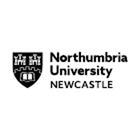- News and articles
- Find usIDP AustraliaIDP BahrainIDP BangladeshIDP CambodiaIDP CanadaIDP ChinaIDP EgyptIDP GhanaIDP Hong KongIDP IndiaIDP IndonesiaIDP IranIDP JordanIDP KenyaIDP KoreaIDP KuwaitIDP LebanonIDP MalaysiaIDP MauritiusIDP Middle EastIDP NepalIDP New ZealandIDP NigeriaIDP OmanIDP PakistanIDP PhilippinesIDP Saudi ArabiaIDP SingaporeIDP Sri LankaIDP Taiwan, ChinaIDP ThailandIDP TurkeyIDP UAEIDP VietnamIDP Corporate
- Social
- English
- Where we operate
- Courses
- Scholarships
- IELTS
- About IDP
- Student Essentials
- News and articles
- Find us
- Find us
- Find nearest IDP offices
- IDP Australia
- IDP Bahrain
- IDP Bangladesh
- IDP Cambodia
- IDP Canada
- IDP China
- IDP Egypt
- IDP Ghana
- IDP Hong Kong
- IDP India
- IDP Indonesia
- IDP Iran
- IDP Jordan
- IDP Kenya
- IDP Korea
- IDP Kuwait
- IDP Lebanon
- IDP Malaysia
- IDP Mauritius
- IDP Middle East
- IDP Nepal
- IDP New Zealand
- IDP Nigeria
- IDP Oman
- IDP Pakistan
- IDP Philippines
- IDP Saudi Arabia
- IDP Singapore
- IDP Sri Lanka
- IDP Taiwan, China
- IDP Thailand
- IDP Turkey
- IDP UAE
- IDP Vietnam
- IDP Corporate
- Social
- Language Switcher
- IDP Education /
- Colleges and Universities /
- United Kingdom /
- Northumbria University, New... /
- MSc Sport and Exercise Psyc...


Location
United Kingdom
Qualification
Masters Degree (Taught)
Fees
GBP19750
(2025)
Duration
1 Year(s)
Next intake
22 September 2025
Entry Score
6.5
IELTSCourse info
You will graduate with a wide range of professional skills, which include the ability to: Critically evaluate current theories and evidence which can be applied to understand and solve complex issues in real world contexts, Communicate your ideas and findings effectively to variety of audiences, whether it be coaches, parents, athletes or exercise enthusiasts and Apply relevant ethical, legal and professional practice frameworks (such as those required by the BPS and HCPC). Your transferable skills will include oral and written communication, critical evaluation, problem solving, time management, IT and advanced statistical and qualitative analysis techniques. Graduates with Stage 1 and Stage 2 qualifications who are interested in sport psychology will be in a strong position to work with major sports teams or field-based consultation at major sporting events. Options for exercise psychologists include working in private rehabilitation, gyms, the NHS, GP exercise referral schemes and local Councils.
- Scholarships View all scholarships
- Internships
Course fees are indicative and should be used as a guide. to get an accurate price.
Duration: 1 Year(s)
Fees: GBP19750
| Intake | Location |
|---|---|
| Semester 1 (September), 2026 | Newcastle-upon-Tyne |
| Semester 1 (September), 2025 | Newcastle-upon-Tyne |
Entry requirements for Northumbria University, Newcastle
Application Deadline
The application deadline isn't available Speak to an IDP counsellor for more detailed information
Further information
If you aren't eligible for the above entry requirements, you might ant to explore pathway options at Northumbria University, Newcastle. If you want to find out more, speak to our counsellors.
THE World Ranking
401st / 1250
THE World Ranking36th / 130
Complete University guideWhat our students think
We’ve haven’t received any reviews for this institution yet.
Recommended for you
- THE World Ranking:601
- Masters Degree (Taught)
- London , United Kingdom
- Next intake:05/2025
- Entry Score: IELTS 6.0
- GBP18150 (2025)
- THE World Ranking:401
- Masters Degree (Taught)
- Bangor , United Kingdom
- Next intake:05/2025
- Entry Score: IELTS 6.0
- GBP19000 (2025)
- THE World Ranking:601
- Masters Degree (Taught)
- Coventry , United Kingdom
- Next intake:05/2025
- Entry Score: IELTS 7.0
- GBP18600 (2025)
- THE World Ranking:801
- Masters Degree (Taught)
- Middlesbrough , United Kingdom
- Next intake:05/2025
- Entry Score: IELTS 6.5
- GBP9000 (2025)
- THE World Ranking:501
- Masters Degree (Taught)
- London , United Kingdom
- Next intake:05/2025
- Entry Score: IELTS 6.5
- GBP19200 (2025)
- THE World Ranking:501
- Masters Degree (Research)
- Cambridge , United Kingdom
- Next intake:05/2025
- Entry Score: IELTS 6.5
- GBP15900 (2025)
- THE World Ranking:801
- Masters Degree (Taught)
- London , United Kingdom
- Next intake:05/2025
- Entry Score: IELTS 6.5
- GBP16200 (2025)
- THE World Ranking:801
- Masters Degree (Taught)
- Middlesbrough , United Kingdom
- Next intake:05/2025
- Entry Score: IELTS 6.5
- GBP15000 (2025)
Your action plan
Step 1
Shortlist your courses
Choose the best three courses you’re most likely to pursue.
Step 2
Check your eligibility
Get an instant in-principle offer for courses with the IDP FastLane tag.
Step 3
Apply through IDP Live
Fill out the form once and use it to apply to multiple courses.
How does IDP FastLane work?
With the FastLane 'Offer in Principle', you'll know in minutes if you'll be accepted!
Select an institution and course
Create your academic profile
Submit your application for an 'Offer in Principle'
Your chosen institution(s) will send you a decision in minutes!
Get ready to apply with an expert counsellor




